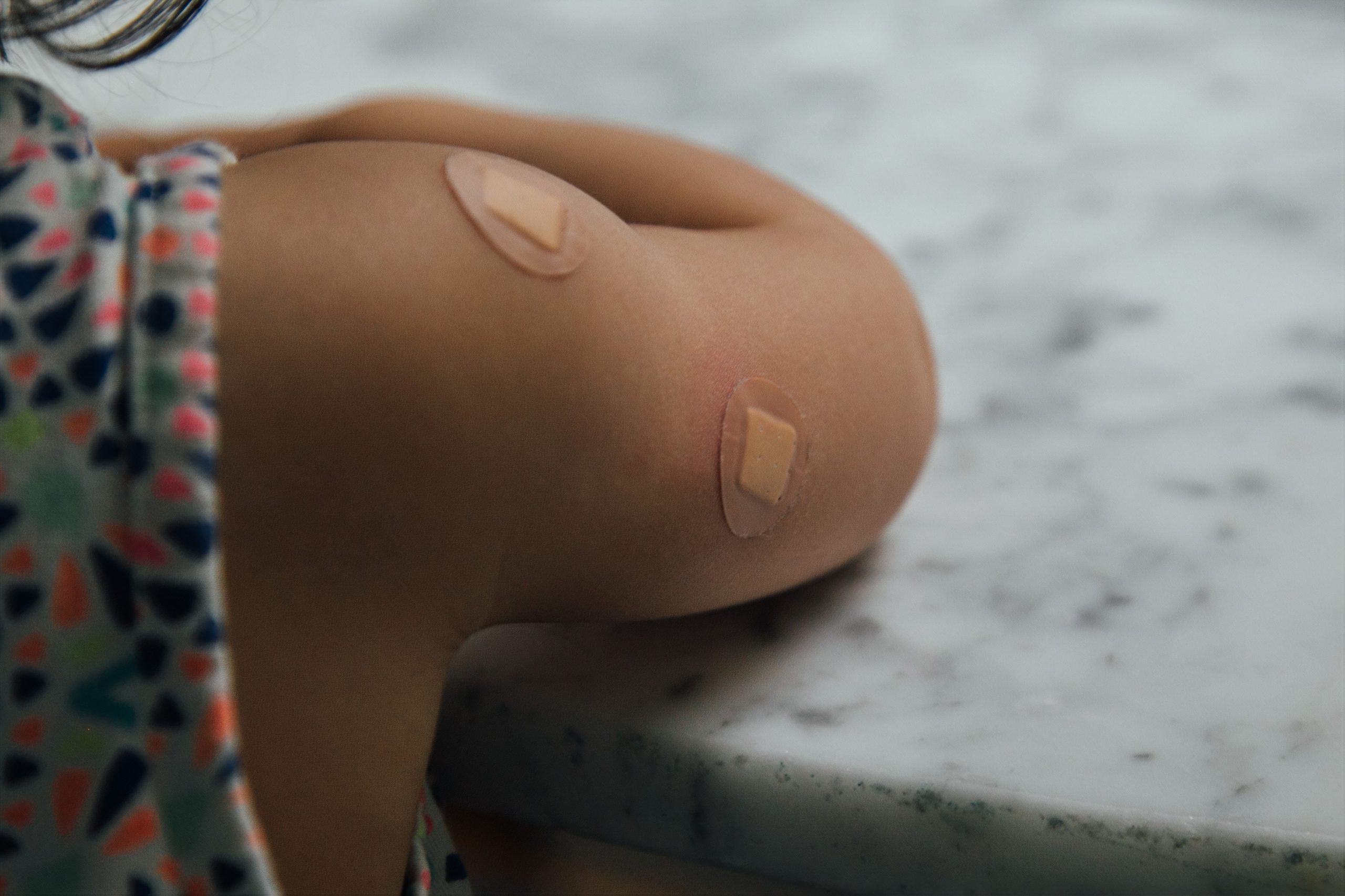
Lauren Dempsey, MS in Biomedicine and Law, RN, FISM News
[elfsight_social_share_buttons id=”1″]
Since the FDA granted an emergency use authorization to Pfizer-BioNTech and Moderna’s COVID-19 vaccines for children under five years old in June, just 325,000 children in the United States in this age group have been “fully vaccinated.”
Dr. Daniel Blatt, a pediatric infectious disease physician at the University of Louisville and Norton Children’s Hospital, quickly jumped to fear-mongering when he spoke to Axios about the numbers.
“What’s at stake really with this is that we’re going to be setting up a bunch of kids for risk of severe disease in the future,” he said. “The way to get ahead of that next variant is to give children a blueprint on how to fight it and that’s what the vaccine does.”
Blatt, however, has been found to have monetary incentive to support Big Pharma’s COVID-19 products. In April 2021, he received $89,573.30 from Eli Lilly and Company to study the pharmaceutical company’s monoclonal antibody formula designed to fight COVID-19.
Contrary to Blatt’s conclusions, data throughout the pandemic has consistently shown that healthy children have faced little-to-no risk from infection. According to hospitalization data that was evaluated by the CDC, 397 children from 14 states were hospitalized between March 2020 and February 2022 with a positive SARS-CoV-2 test. An analysis found that at least 70% of hospitalized children had an underlying medical condition, noting that “children with diabetes and obesity were more likely to experience severe COVID-19.”
Also in contrast to Blatt’s claims, studies and data have increasingly shown that the efficacy of the vaccines drops drastically over just a matter of weeks, meaning a vaccine now likely means little-to-no protection against infection at all within a few months.
New research is also showing that for some people there can be, and have been, long-term complications from COVID-19 vaccination. Incidents of myocarditis and pericarditis are no longer considered misinformation and a recent CDC report found that over half of children that are vaccinated experience a “systemic reaction” afterward.
The American Academy of Pediatrics (AAP), which tracks COVID-19 trends and makes recommendations, reported that 1.3 million children in the United States under five years old have received at least one dose of COVID-19 vaccination. This represents about 8% of children in that age group.
Vaccination rates vary across the country. In Washington, D.C., 28% of children under five have received at least one COVID vaccination. Some states like Louisiana and Alabama report as little as 2% of children in this age group have received at least one dose.
Apprehension, after Pfizer-BioNTech and Moderna were granted EUA, shouldn’t be a shock to experts and physicians. A Kaiser Family Foundation report from June found that only 1-in-5 parents plan to get their children under 5 years old vaccinated, and 27% of those polled say they will “definitely not” get their child vaccinated, while 11% said they would only do so if a vaccine is required.
Many parents are also concerned that the vaccines have also proven to have limited safety and efficacy.
Pfizer-BioNTech’s COVID-19 vaccine initially showed an efficacy rate of 96.2%, which sounded promising. However, rates “gradually declined to 83.7% from 4 months after the second dose to the data cutoff date — an average decline of approximately 6% every 2 months,” according to one of the most optimistic studies.
Another showed efficacy drop to as low as 35% by week 10.
